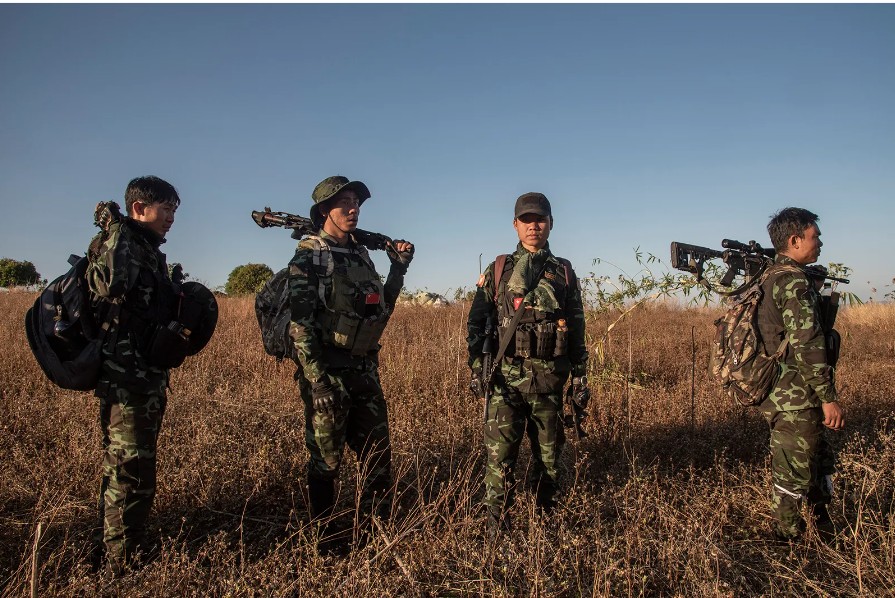CNI News
16 May 2025
While armed conflicts are growing and there are situations in which efforts can be made to change the borders of States and Regions and to secede, more people want to keep the current border demarcation, according to a survey released by the Blue Shirt Initiative.
The Blue Shirt Initiative conducted a survey between March 21 and 25, 2025, asking people whether they would like to keep state and region borders as they are, whether they should allow the formation of new states and regions, and whether they would accept or reject secession.
The survey was conducted in 235 townships across 14 states and regions, with 3,185 respondents, including 1,840 responses via Survey Link, 1,242 face-to-face interviews, and 72 responses via telephone, the Blue Shirt Initiative reported.
Then, 46 percent of respondents nationwide said they wanted to keep the state and region boundaries as they are now, 33 percent nationwide said they wanted to allow the formation of new states, and 22 percent said they did not know or did not want to answer.

While seeing the survey regarding whether secession should be allowed or not
On the same question, 42 percent of those in the states wanted to keep the status quo, 36 percent wanted to allow the formation of new states, and 21 percent did not know or did not want to answer. In the regions, 47 percent wanted to keep the status quo, 31 percent wanted to allow the formation of new states, and 21 percent did not know or did not want to answer.
Similarly, in Yangon, 46 percent want to keep the borders of Regions and States as they are, 31 percent want to allow the formation of new states, and 22 percent do not know or do not want to answer. In Sagaing and Magway Regions, 51 percent want to keep the borders of Regions and States as they are, 35 percent want to allow the formation of new states, and 14 percent do not know or do not want to answer.
When asked whether they would prefer to be allowed to secede from Myanmar or remain united as they are now, the Blue Shirt Initiative survey found that 47 percent of the country favored remaining united as they are now, 33 percent favored secession, and 20 percent did not know or did not want to answer.
Then, 40 percent of the States want to remain united as they are, 42 percent want to be allowed to secede, and 19 percent do not know or do not want to answer. Similarly, in the Regions, 49 percent said they should remain united as they are, 30 percent said they should be allowed to secede, and 21 percent said they didn't know or didn't want to answer.

An armed group
In Yangon, 44 percent said Regions and States should remain united as they are, 32 percent said secession should be allowed, and 24 percent said they didn't know or didn't want to answer. In Sagaing and Magway divisions, 55 percent said the country should remain united as it is, 31 percent said secession should be allowed, and 13 percent said they didn't know or didn't want to answer.
In Sagaing and Magway Regions, 55 percent said the country should remain united as it is, 31 percent said secession should be allowed , and 13 percent said they didn't know or didn't want to answer.
Currently, fierce battles are taking place across Myanmar, both between the Myanmar Tatmadaw and armed groups, and between armed groups themselves. The conflicts have been triggered by different goals, including the redrawing of state and regional borders, secession, the creation of special autonomous regions, and the overthrow of the SAC and the Myanmar Tatmadaw.




